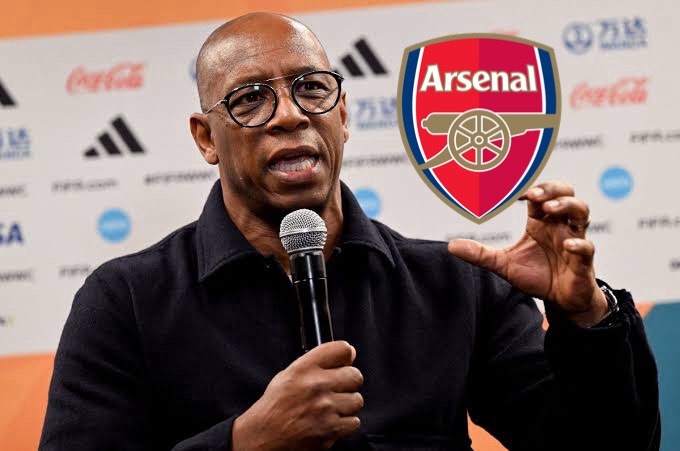“I’ve never cried in my life the way i cried on that day, it was the most emotional day of my life, i was so devastated about Arsenal”- Arsenal icon Ian Wright revealed what happened on the most emotional day of his life at Arsenal

“I’ve never cried in my life the way i cried on that day, it was the most emotional day of my life, i was so devastated about Arsenal”- Arsenal icon Ian Wright revealed what happened on the most emotional day of his life at Arsenal
‘I don’t think I’ve cried as much as when I went to Arsenal – I was devastated’
Ian Wright is widely regarded as being one of Arsenal’s greatest players, but the beloved pundit also admitted he wasn’t in the best mood when he joined the club
Ian Wright said he burst into tears when he joined Arsenal as a player.
The former striker and now beloved pundit is considered to be one of the finest forwards to ever play for the Gunners. He contributed 168 goals and 12 assists in 270 appearances for the North Londoners.
However, he endured a lot of frustration when he was first considered to be in the mix for the England squads of the early 1990s. While detailing his disappointment at being snubbed by the Three Lions, he curiously admitted to initially feeling sad when his move to Arsenal was confirmed.
When asked about being snubbed by Graham Taylor for the 1992 European Championship, Wright told The Overlap: “One of the worst I’ve ever felt – and I don’t think I’ve cried as much – was when I went to Arsenal in 91/92.
“It was Gary Lineker’s last one, Alan Shearer and Alan Smith – it’s something that I think back at and feel like I’ve been robbed of something because I was flying at the time. Those are the reasons why I always felt like I was angry throughout my career because I always felt like I had to prove it because I wasn’t going to get the recognition I deserved.”
England finished rock bottom of a group also featuring France, Denmark and Sweden. Wright went on to enshrine himself as an Arsenal legend throughout his seven years at Highbury. However, he was still driven by the frustration of the way in which he was portrayed in the British press.
“[I was angry as a player because] I felt like I didn’t get respect,” he added. “Nationally – not the players, the players were fine – but the way the press would document me, it was always negative.
“In games that I was doing well, they would always go back to the negative thing of what I may have done. I always found the reason why I might have been so angry was I didn’t feel I was getting any kind of credit or recognition.”
